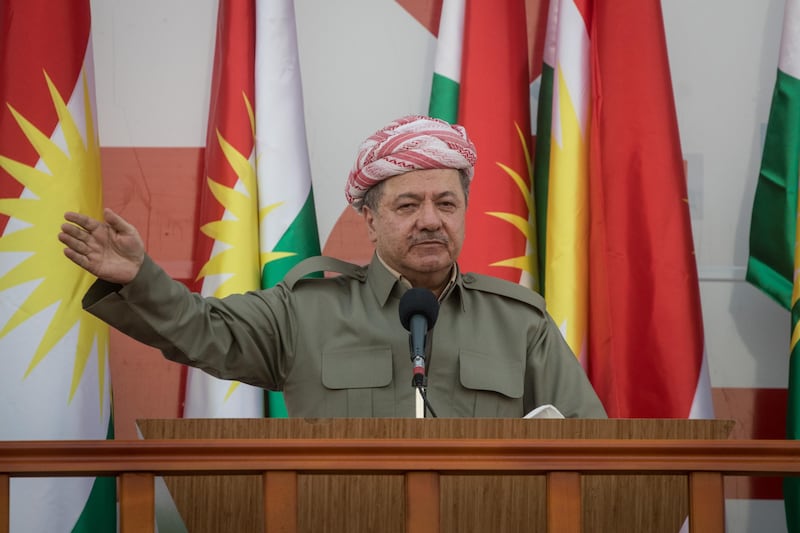Masoud Barzani was born in 1946, in the Republic of Mahabad, the short-lived Kurdish state that existed that year in Iran. Small wonder, then, that he has clung resolutely throughout his 71 years to the dream of an independent Kurdistan.
He has been a central figure in the independence movement through 40 years of war and relative peace in Iraq and president of Iraqi Kurdistan since 2005. Now he stands on the threshold of fulfilling his life's ambition as Iraqi Kurds prepare to vote in a referendum on independence on Monday, September 25.
His father, Mustafa, was a Kurdish nationalist leader who is often described as the most famous Kurd since the 12th century warrior Saladin, who fought in the Crusades. On August 16, 1946, the day his son was born, Mustafa Barzani founded the Kurdish Democratic Party (KDP).
"I was born in the shadow of the Kurdistan flag in Mahabad (Iran) and I am ready to serve and die for that same flag," Masoud Barzani is fond of saying.
When the Kurdish republic collapsed, his father fled to the Soviet Union. Young Masoud went to live with his grandfather in Mosul. At 16, he left school to join the Kurdish peshmerga fighters. After the death of his father in 1979, Masoud was elected president of the KDP. He has been re-elected at every party congress since then.
During the Iran--Iraq war, which lasted from 1980 to 1988, he and his brother Idris fought against Iraqi government forces in Baghdad while much of the Kurdish leadership was exiled in Iran.
The end of the Gulf War, along with the Kurdish uprising against the Iraqi government in 1991 signalled a new chapter for Mr Barzani. The imposition of a no-fly zone over northern Iraq resulted in the administration of the region being removed from the central government in Baghdad and the Kurds were also given control of their traditional homeland in the north of the country, with Erbil as their capital. They have run their own affairs more or less ever since and consequently feel little connection to Baghdad.
Mr Barzani had to make the transition from being a guerrilla leader to statesman responsible for the civilian population in the areas of Iraqi Kurdistan outside the rule of former dictator Saddam Hussein.
Following the fall of Hussein's regime Mr Barzani became a member of the Iraqi governing council. In 2005 he was elected president of the Kurdish Regional Government (KRG)in Iraq and re-elected in 2009 with 71 per cent of the vote. During his presidency he has established several institutions to develop democracy, and courted many foreign leaders including President George W Bush and the British prime minister Tony Blair. As well as Kurdish, Mr Barzani speaks Arabic and Farsi and understands English.
However. the fact that he appointed his nephew Nechirvan Barzani prime minister and made his son Masrour intelligence chief has left him open to accusations of nepotism.
The push for independence gained impetus after the Kurdish region fell under the threat of ISIL extremists in 2014 and the Kurdish leaders felt side-lined by Baghdad’s central government. Their participation in the fight against ISIL enabled the Kurds to expand their territory over ethnically-mixed disputed areas along its internal boundary with the rest of Iraq.
In June 2014, Erbil announced that the oil-rich city of Kirkuk and other disputed areas in northern Iraq were henceforth part of the Kurdish autonomous region, after the Iraqi government failed to hold a long-awaited referendum. Baghdad was enraged by the Kirkuk power grab, and relations between Baghdad and Erbil deteriorated further.
Mr Barzani seized the moment and announced the referendum. His moment had come.






